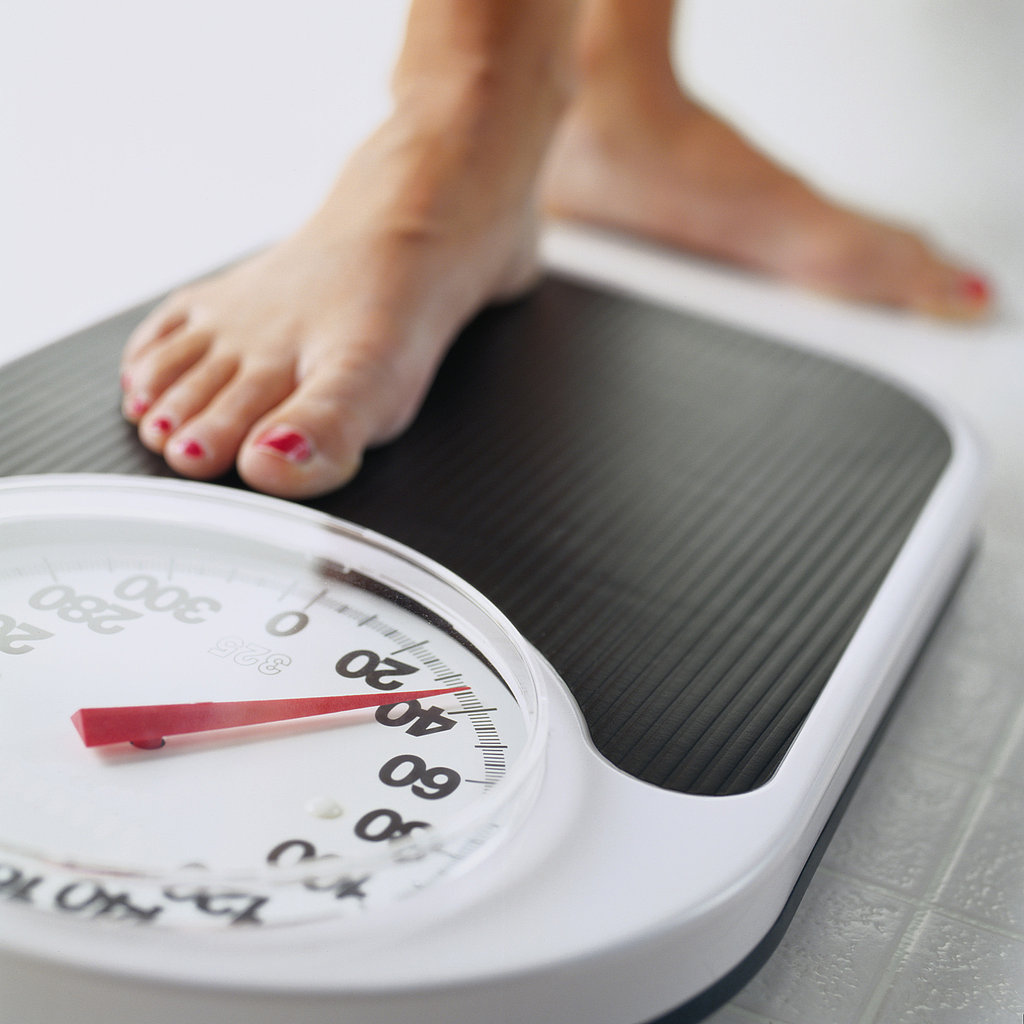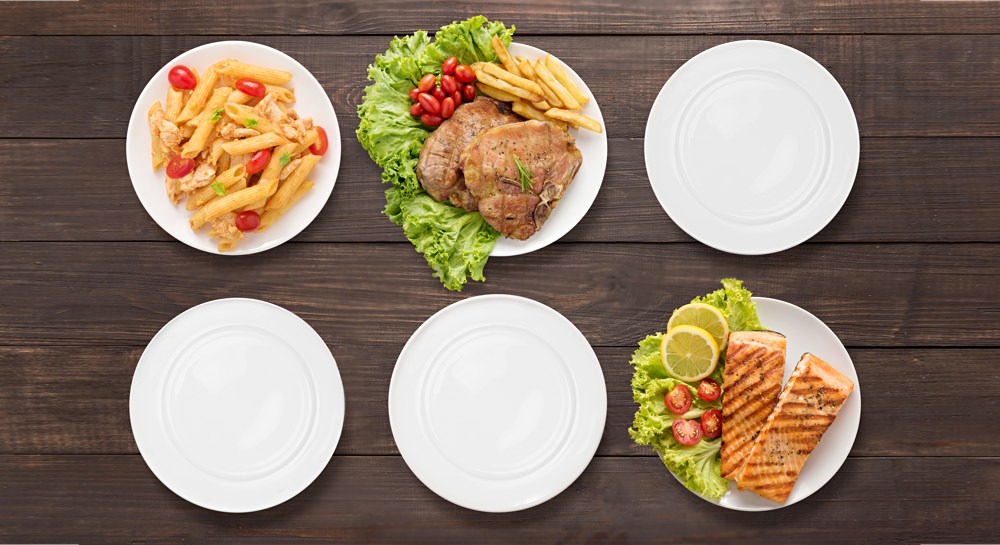The Top 7 Ways To Lose Weight Without Exercise or Dieting
Dropping a few pounds doesn’t have to involve deprivation or intense workouts. Listed below are the top secrets to weight loss. Simply start with the one that resonates with you and implement those changes into your life until it seems effortless. It’s not about making the right choice, but making a choice and then making it right by sticking with it and not giving up if things don’t drastically change overnight. So pick one out and get started!
1. Chew Thoroughly and Slow Down
Your brain needs time to process that you’ve had enough to eat.
Chewing your food better makes you eat more slowly, which is associated with decreased food intake, increased fullness and smaller portions.
How quickly you finish your meals may also affect your weight.
A recent review of 23 observational studies reported that faster eaters are more likely to gain weight, compared to slower eaters.
Fast eaters are also much more likely to be obese. To get into the habit of eating more slowly, it may help to count how many times you chew each bite.
Bottom Line: Eating your food slowly can help you feel fuller with fewer calories. It is an easy way to lose weight and prevent weight gain.
2. Get drunk by Water
Drinking water regularly helps keep you feeling full so you don’t snack on empty calories, and hydrating before you exercise will help release muscle-building hormones in your body — which spells good news for not only your strength goals but also your metabolism.
Drinking water can help you eat less and lose weight, especially if you drink it before a meal.
It’s also going to help your body flush toxins and other waste from your system, keeping your liver and your kidneys properly engaged. Being well hydrated also means you’ll have improved digestion, as your digestive organs suffer as well from a state of dehydration.
One study in adults found that drinking half a liter (17 oz) of water, about half an hour before meals, reduced hunger and helped them eat fewer calories.
Participants who drank water before a meal lost 44% more weight over a 12-week period, compared to those who did not.
If you replace calorie-loaded drinks — such as soda or juice — with water, you may experience an even greater effect.
Drinking water before meals may help you eat fewer calories. Replacing a sugary drink with water is particularly beneficial.
So keeping a bottle of water nearby can be very helpful.
3. Cut out Sugar
Cutting out sugar can be hard for many because it is so prevalent in our society. Many sugary candies are labeled fat free, which is technically true, except that the body turns that excess sugar into fat, so in essence sugar is making you fat, and is also wreaking havoc on your blood glucose levels, which can lead to complications if left unchecked.
Added sugar may very well be the single worst ingredient in the diet today.
Sugary beverages, like soda, have been associated with an increased risk of many Western diseases
It’s very easy to take in massive amounts of excess calories from sugary drinks, because liquid calories don’t affect fullness like solid food does.
Staying away from these beverages entirely can provide enormous long-term health benefits. However, note that you should not replace soda with fruit juice, as it can be just as high in sugar.
Healthy beverages to drink instead include water and green tea.Water’s not the only metabolism booster in town. Studies have shown that drinking green tea can give your metabolism a tiny increase — which can add up to over 400 extra calories burned a week! Not only that, the beverage has got some major antioxidant power, so skip the sugary products and drink up that tea!
4. Sleep more, Weigh Less
When it comes to health, sleep and stress are often neglected. But in fact, both can have powerful effects on your appetite and weight.
Sleeping an extra hour a night could help a person drop 14 pounds in a year, according to a University of Michigan researcher who ran the numbers for a 2,500 calorie per day intake. His scenario shows that when sleep replaces idle activities — and the usual mindless snacking — you can effortlessly cut calories by 6%. Results would vary for each person, but sleep may help in another way, too.
A lack of sleep may disrupt the appetite-regulating hormones leptin and ghrelin. Another hormone, called cortisol, becomes elevated when you’re stressed.
Having these hormones disrupted revs up your hunger and cravings for unhealthy food, leading to higher calorie intake.
What’s more, chronic sleep deprivation and stress may increase your risk of several diseases, including type 2 diabetes and obesity.
5. Plate size does matter
The typical food plate is larger today than it was a few decades ago.
This is unfortunate, since using a smaller plate may help you eat less by making portions look larger.
At the same time, a bigger plate can make a serving look smaller, causing you to add more food.
Choose a 10-inch lunch plate instead of a 12-inch dinner plate to automatically eat less. Cornell’s Brian Wansink, PhD, found in test after test that people serve more and eat more food with larger dishes. Shrink your plate or bowl to cut out 100-200 calories a day — and 10-20 pounds in a year. In Wansink’s tests, no one felt hungry or even noticed when tricks of the eye shaved 200 calories off their daily intake.
You can use this to your advantage by serving healthy food on bigger plates and less healthy food on smaller plates.
Smaller plates can trick your brain into thinking you’re eating more than you actually are. Therefore, it’s smart to consume unhealthy foods from smaller plates, causing you to eat less.
6. Eat Protein and Fiber-Rich Foods
Eating fiber-rich foods may increase satiety, helping you feel fuller for longer.
Studies also indicate that a special kind of fiber, called viscous fiber, is particularly helpful for weight loss. It increases fullness and reduces food intake.
Viscous fiber forms a gel when it comes in contact with water. This gel increases the time it takes to absorb nutrients and slows down the emptying of the stomach.
Viscous fiber is only found in plant foods. Examples include beans, oat cereals, Brussels sprouts, asparagus, oranges and flax seeds.
A weight loss supplement called glucomannan is also very high in viscous fiber.
Viscous fiber is particularly helpful in reducing appetite and food intake. This fiber forms gel that slows down digestion.
Protein can also play a big role when it comes to enhancing your weight loss efforts. Lean beef and legumes, which are good examples of protein heavy foods score highly on the satiety index. This means that once you eat such foods, you will feel hungry less often and be able to reduce your calorie intake. This in turn will help you lose weight. Research has proven that people who concentrate on protein heavy diets eat over 400 calories less in a day. Over time, it makes a big difference.
Moreover, a diet heavy in proteins boosts the metabolism into using anywhere from 80-100 more calories in a day. Eating eggs for breakfast and incorporating healthy meats and legumes such as lentils and black beans is a good choice to make.
7. Get a Fitness Tracker
Getting an objective look at how much or how little you move per day can be the wake up call needed to spur on more activity. Today’s fitness trackers can record all sorts of data, including how many steps you take, how many stairs you take, and even how well you’re sleeping at night. this information is graphed and presented to you in easy to understand charts so that you can easily determine how good of a day or week you’ve had. You get instant gratification from trying to outdo your best performance, and some of the trackers out there actually make it into a game, translating your data into how high up a mountain you would have climbed.
Anything Else?
There are many simple lifestyle habits that can help you lose weight, some of which have nothing to do with conventional diet or exercise plans.
You can use smaller plates, eat more slowly, drink water and avoid eating in front of the TV or computer. Prioritizing foods rich in protein and viscous fiber may also help.
However, I wouldn’t try all these things at once. Start to experiment with one tip for a while, and if that works well and is sustainable for you then try another one.
A few simple changes can have a massive impact over the long term.
Source: Authority Nutrition
“The Top 7 Ways To Lose Weight Without Exercise or Dieting”


